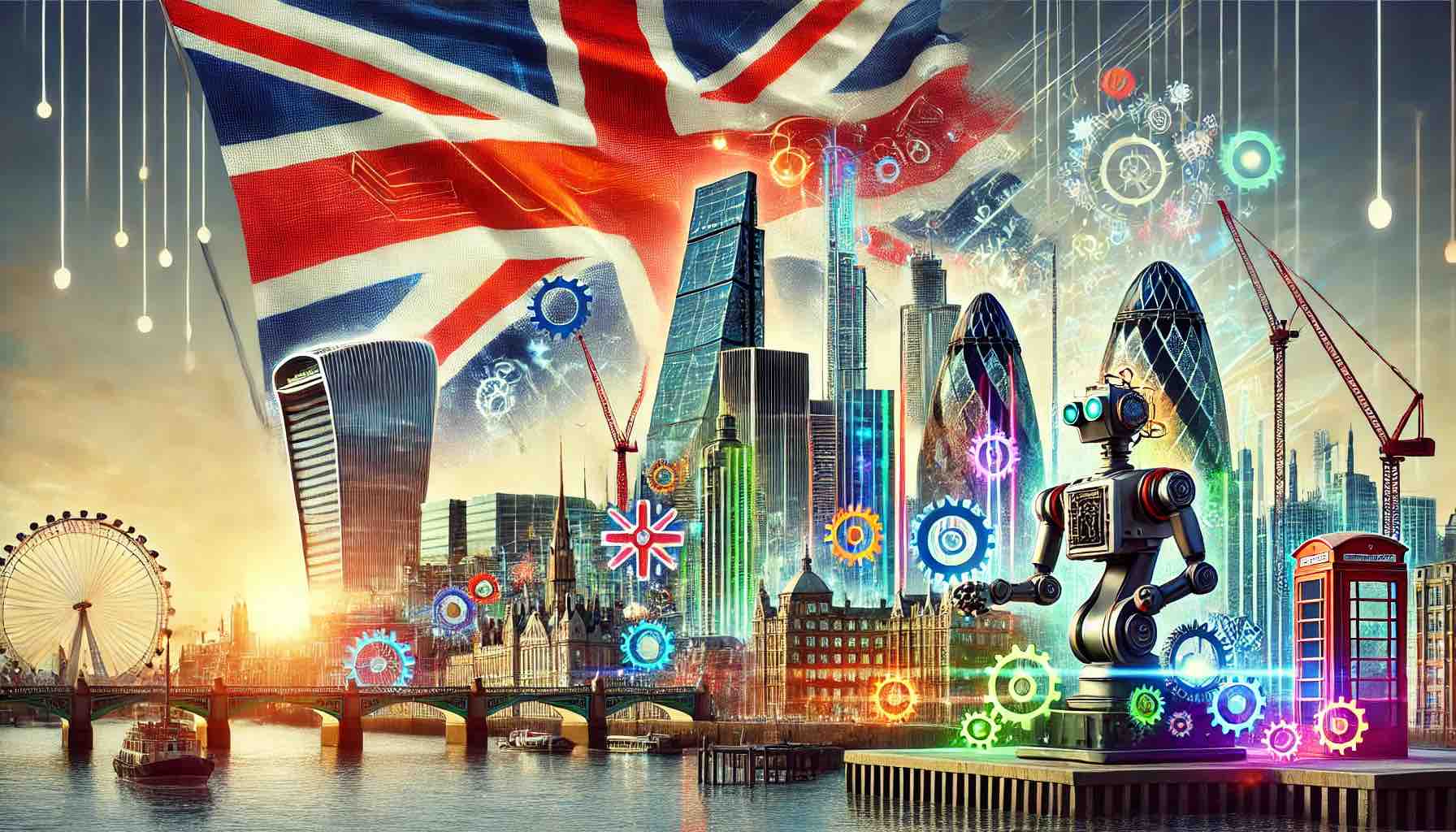

The robotics and automation sector is witnessing remarkable growth worldwide, revolutionizing industries like manufacturing, logistics, healthcare, and more. The adoption of robotics and automation technologies is not only enhancing operational efficiency but also driving innovation and growth in several global economies. In 2024 and 2025, companies across London, the UK, Europe, Asia, the USA, and China will continue to lead this transformation, offering cutting-edge solutions to address the demands of the future.
This article highlights the top 10 robotics and automation companies in these regions, focusing on their innovations, market impact, and future potential.
1. Ocado Technology (London, UK)
Ocado Technology, based in the UK, is one of the most advanced robotics and automation companies in the retail and e-commerce sector. Initially starting as an online grocery platform, Ocado has transformed itself into a tech-driven organization that offers its proprietary Ocado Smart Platform to retailers worldwide. The company is known for its automated warehouse systems, where robots move seamlessly to pick, pack, and dispatch orders. These warehouses use artificial intelligence (AI) and robotics to process thousands of orders efficiently and with minimal human intervention.

In 2024 and 2025, Ocado’s automation systems are expected to be adopted by more retailers globally, expanding their influence beyond the UK. The company’s partnership with Marks & Spencer and global retail giants in the USA and Europe highlights its growing market presence. With continuous innovation in AI and automation, Ocado Technology is setting new standards for warehouse efficiency【7†source】.
Website: ocadogroup.com
2. ABB Robotics (Switzerland, Europe)
ABB Robotics, headquartered in Switzerland, is one of the leading global players in industrial automation and robotics. The company offers a wide range of automation solutions, including industrial robots, collaborative robots (cobots), and automation systems for manufacturing, energy, and transport industries. ABB’s robots are known for their precision, reliability, and efficiency, making them the go-to choice for manufacturing plants worldwide.

In recent years, ABB has expanded its focus on cobots—robots that can work alongside humans—allowing companies to improve efficiency without sacrificing safety. The European robotics market is set to grow exponentially, and ABB is well-positioned to dominate in sectors such as automotive, electronics, and logistics. Their recent partnerships with tech companies in Asia and the USA ensure their influence remains global【8†source】.
Website: abb.com
3. KUKA Robotics (Germany, Europe)
KUKA Robotics, based in Augsburg, Germany, is a pioneer in industrial robotics and automation systems. The company specializes in manufacturing robots for industrial applications, including automotive assembly, logistics, electronics, and healthcare. KUKA’s robots are known for their versatility, precision, and ability to work in complex environments.

One of KUKA’s standout innovations is its role in the automotive industry, where it provides robotic solutions for assembly lines, helping manufacturers automate processes such as welding, painting, and assembling vehicle components. In 2024-2025, KUKA is expected to further expand its footprint in sectors like healthcare and logistics as the demand for automation in these industries grows. KUKA is poised to lead the European robotics market alongside companies like ABB【9†source】.
Website: kuka.com
4. FANUC (Japan, Asia)
FANUC, headquartered in Japan, is a global leader in factory automation and industrial robotics. The company provides a wide range of automation products, including robots, CNC systems, and laser systems, for industries such as automotive, electronics, and manufacturing. FANUC is renowned for its high-precision robots that are widely used in production lines around the world.

FANUC has expanded its presence globally, particularly in Europe and the USA, offering robotics solutions that cater to the growing demand for automation in manufacturing. As the Asian robotics market continues to expand, FANUC is expected to remain a dominant player, particularly in the automotive and electronics sectors, where precision and speed are critical【8†source】.
Website: fanuc.co.jp
5. Yaskawa Electric (Japan, Asia)
Yaskawa Electric, another major robotics company from Japan, is recognized for its innovations in industrial automation, motion control, and robotics. Yaskawa’s robotics division, known for its Motoman robots, provides solutions for industries such as automotive, healthcare, packaging, and logistics. These robots are designed to handle tasks ranging from welding and material handling to assembly and packaging.

Yaskawa’s growth trajectory continues to rise, especially as demand for automation in Asia increases. With innovations in collaborative robots and a focus on simplifying complex automation tasks, Yaskawa is positioning itself as a key player in the global robotics market. In 2024-2025, Yaskawa’s robotics solutions are expected to expand into new industries like healthcare and pharmaceuticals【9†source】.
Website: yaskawa.co.jp
6. Boston Dynamics (USA)
Boston Dynamics, based in Waltham, Massachusetts, USA, is one of the most well-known robotics companies globally, primarily due to its innovative and cutting-edge robots like Spot, Atlas, and Stretch. Boston Dynamics’ robots are known for their agility, mobility, and ability to navigate complex environments, making them ideal for industries such as construction, logistics, and military.

In 2021, Boston Dynamics was acquired by Hyundai Motor Group, a move that has expanded its capabilities and reach. In 2024-2025, Boston Dynamics is expected to further develop its robots for commercial use, particularly in logistics, where automation is crucial for meeting the growing demand for e-commerce. The company’s ability to combine robotics with AI and machine learning will likely drive innovation in the industry【8†source】.
Website: bostondynamics.com
7. Zebra Technologies (USA)
Zebra Technologies, based in Lincolnshire, Illinois, USA, has made significant strides in automation through its acquisition of Fetch Robotics, a leader in autonomous mobile robots (AMRs) for warehousing and logistics. Fetch Robotics provides robots that can autonomously transport goods within warehouses, distribution centers, and manufacturing facilities, helping businesses optimize efficiency and reduce operational costs.

Zebra Technologies has leveraged Fetch Robotics’ AMR solutions to expand its offerings in the logistics and supply chain sectors. As e-commerce continues to grow, Zebra’s automation solutions are poised to become a key component in helping companies meet the increased demand for quick and efficient deliveries【9†source】.
Website: zebra.com
8. DJI Innovations (China)
DJI Innovations, based in Shenzhen, China, is the world’s leading manufacturer of drones for commercial and consumer use. While DJI is most famous for its consumer drones, the company has expanded into industrial applications, offering drones for sectors such as agriculture, construction, energy, and public safety. These drones are equipped with advanced sensors, AI-powered software, and automation features that make them ideal for precision agriculture, infrastructure inspections, and surveillance.

DJI’s focus on automation and AI-driven technologies makes it a leader not just in drone manufacturing but also in robotics and automation. In 2024-2025, DJI is expected to continue expanding its industrial applications, driving innovation in areas like smart farming and automated infrastructure monitoring【8†source】.
Website: dji.com
9. Hikvision Robotics (China)
Hikvision, primarily known as a global leader in video surveillance, has expanded its portfolio to include robotics and automation solutions. Based in Hangzhou, China, Hikvision Robotics offers automation solutions for industries such as logistics, manufacturing, and smart cities. The company’s robots are designed to enhance warehouse operations by automating tasks such as material handling and sorting.

Hikvision’s robotics division is growing rapidly, particularly in China’s booming industrial sector. As more companies in China and Asia adopt robotics for manufacturing and logistics, Hikvision is well-positioned to capitalize on this trend. The company’s deep expertise in AI and computer vision gives it a competitive edge in the automation market【7†source】.
Website: hikvision.com
10. Siasun Robot & Automation (China)
Siasun Robot & Automation, based in Shenyang, China, is one of the largest robotics companies in China. The company manufactures a wide range of robots for industrial applications, including welding robots, assembly robots, and material handling robots. Siasun’s products are used in industries such as automotive, electronics, and logistics.

Siasun has been expanding its presence globally, with a focus on automation solutions for smart factories and Industry 4.0. As the demand for automation continues to rise in China and other Asian markets, Siasun is expected to play a key role in the development of robotics technologies in the region【9†source】.
Website: siasun.com
Conclusion
The robotics and automation sector is transforming industries worldwide, with companies in London, Europe, Asia, the USA, and China at the forefront of innovation. As automation becomes increasingly essential across various sectors such as manufacturing, logistics, and healthcare, these top companies are setting the standards for the future of robotics. With rapid advancements in AI, autonomous systems, and collaborative robotics, the industry is poised for exponential growth in the coming years. Investors and industry leaders should keep a close eye on these companies as they continue to revolutionize the global economy.
References
- Financial Times. “Automation and Robotics Market Report.” Financial Times
- Bloomberg. “The Future of Robotics and Automation in 2024-2025.” Bloomberg
- CNN. “Top Robotics Companies to Watch in 2024.” CNN









